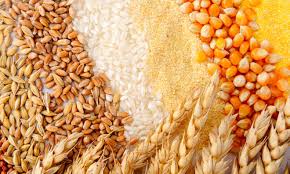
Cereal products processing involves the transformation of raw cereal grains such as maize, wheat, rice, barley, sorghum, millet and oats into value-added food products that are safe, nutritious, and acceptable to consumers. Cereals are staple foods globally and contribute a significant portion of dietary carbohydrates, proteins, vitamins, minerals, and dietary fiber. However, raw grains often require various processing operations to improve their edibility, digestibility, shelf life, and functional properties.
Processing techniques range from traditional methods (such as dehulling, milling, fermentation, malting, and roasting) to modern industrial operations (such as extrusion, puffing, instantization, and fortification). These techniques modify grain structure, reduce antinutritional factors, enhance sensory qualities, and increase versatility in food formulations.
Cereal processing forms the foundation of many commonly consumed products including flour, breakfast cereals, bread, pasta, weaning foods, snack foods, and beverages. In food industries and technical training programs, understanding cereal processing is essential for developing high-quality products, maintaining food safety, ensuring compliance with standards, and promoting innovation.
- Teacher: Admin User


